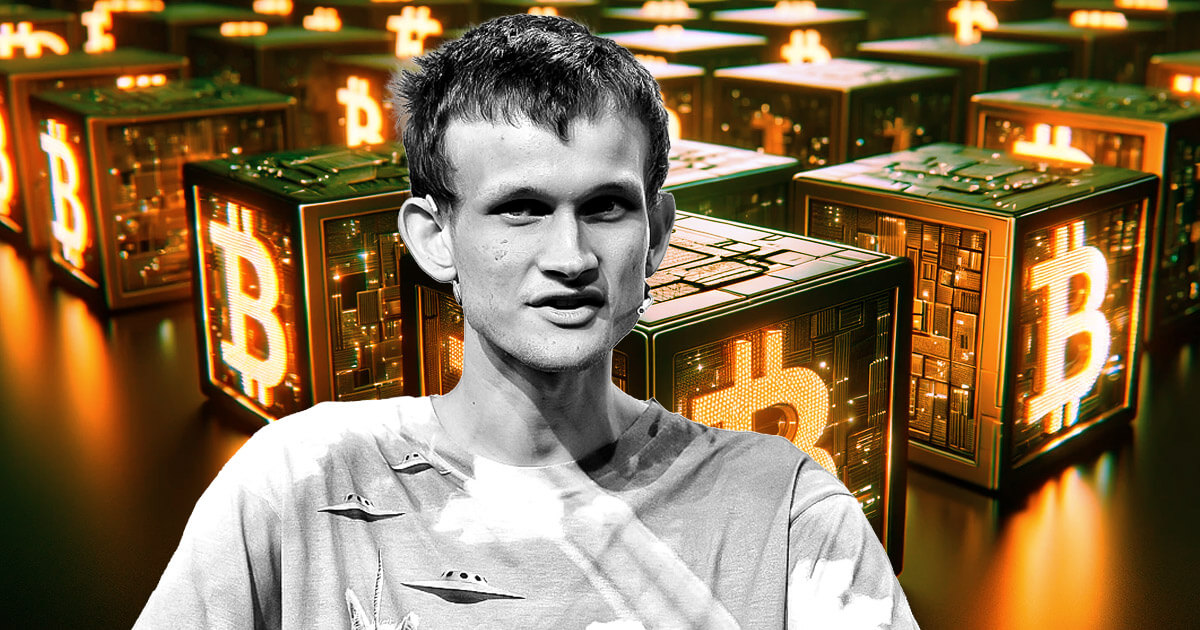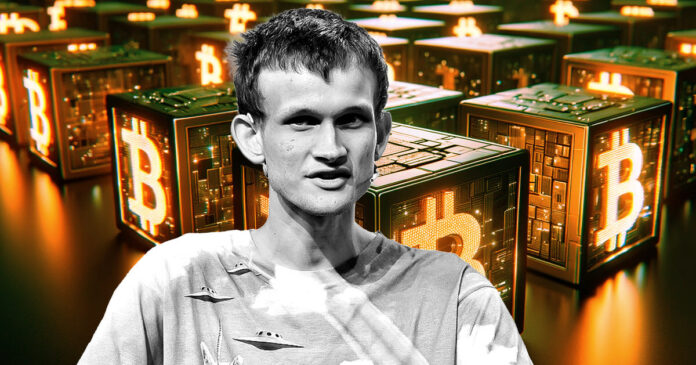
Vitalik Buterin, co-founder of Ethereum, offered an in depth account of Bitcoin's Block Dimension Wars, a big battle within the Bitcoin group that lasted from 2015 to 2017. This debate centered on whether or not to extend Bitcoin's block dimension restrict from 1MB to accommodate extra transactions, thereby lowering charges and rising its utility as a cost system.
Having skilled the block dimension conflict first hand, Buterin was initially aligned with the “massive blockers”. This group advocated for bigger blocks to maintain transaction charges low and keep bitcoin's function as digital money. They argued that Bitcoin's authentic imaginative and prescient, as outlined in its whitepaper, was to function a peer-to-peer digital money system. Huge blockers believed that rising the block dimension was crucial to forestall excessive charges from undermining this use case. Additionally they referenced Satoshi Nakamoto's writings, which proposed that bigger blocks might be managed by simplified cost verification and exhausting forks to steadily enhance block sizes.
Quite the opposite, the “small blockers” favored sustaining the decentralization and safety of Bitcoin. They argued that bigger blocks would make it harder and costly for people to run nodes, doubtlessly centralizing management amongst just a few massive entities. Small blockers have been involved that frequent and important modifications to the protocol, primarily by exhausting forks, might undermine Bitcoin's stability and governance mannequin. They believed that Bitcoin ought to stay a decentralized retailer of worth, much like digital gold, somewhat than specializing in a cost system.
Buterin's reflections reveal a nuanced understanding of either side. He admitted that whereas he believed the massive blockers have been proper to wish bigger blocks to maintain charges down, they typically lacked the technical competence to successfully implement their options. He criticized the massive blockers for not agreeing on life like limits for block dimension will increase and for his or her technical errors, such because the poorly executed Bitcoin Traditional and Bitcoin Limitless tasks. These tasks have been marred by safety flaws and overly advanced implementations, which in the end discredited the massive block motion.
Buterin, however, discovered the method of small blockers to administration and protocol modifications too conservative. He disagreed with their inflexible stance on exhausting forks and their reliance on gentle forks, which he thought of unnecessarily advanced. He additionally criticized small blockers for his or her alleged censorship of social media and exclusion of dissenting views, stifling open debate throughout the group.
Assessing the long-term implications, Buterin pointed to a recurring downside in political and organizational conflicts: the “one-sided competence entice,” the place one aspect monopolizes competence however fails to think about broader views. This dynamic within the block dimension conflict prevents constructive dialogue and progress. “Good individuals wish to work with different sensible individuals,” Buterin famous, stressing the significance of balanced and inclusive approaches to keep away from such pitfalls.
Buterin additionally criticized the shortage of technological foresight within the debates, pointing to the absence of zero-knowledge proof-of-concept discussions (ZK-SNARKs) that might provide scalable options. “The last word diffuser of political pressure will not be compromise, however somewhat new expertise,” he argued, advocating continued innovation to handle scalability and governance points.
Buterin mirrored on Ethereum's evolution, noting how classes from Bitcoin's block dimension wars influenced Ethereum's emphasis on consumer variety and scalable Layer 2 options. He emphasised the significance of studying from previous conflicts to construct extra resilient and pluralistic digital communities. “Etherea's specific try to help a pluralistic ecosystem is essentially an try to keep away from one-sided competence traps,” he concluded, emphasizing the worth of inclusive governance and technological progress.
Buterin's view highlights the broader implications of the block dimension conflict for the crypto group. He sees it as a cautionary story in regards to the risks of one-sided competence traps, the place one faction monopolizes technical data however pushes a slender agenda whereas the opposition fails to develop the mandatory abilities to comprehend its imaginative and prescient. This dynamic, he argues, can result in stagnation and inside battle.
Buterin in the end believes that the answer to such conflicts lies within the adoption of latest applied sciences that may tackle the considerations of either side. He factors to advances in ZK-SNARK and different scalability options as potential methods to reconcile the necessity for low charges with the necessity to keep decentralization. By specializing in technological innovation, Buterin hopes the crypto group can overcome divisive debates and work in the direction of extra inclusive and sensible options.
Buterin's reflections on Bitcoin's block dimension wars spotlight the significance of balancing decentralization, technical functionality, and modern options within the evolution of crypto-ecosystems. His insights present an fascinating lens by which to grasp the complexities of Bitcoin's previous and the continued challenges going through digital currencies.
